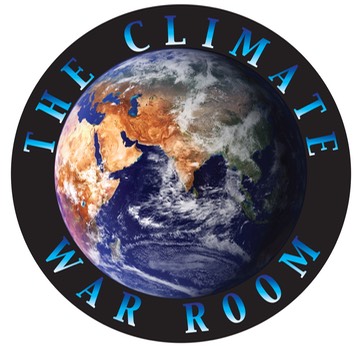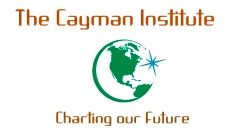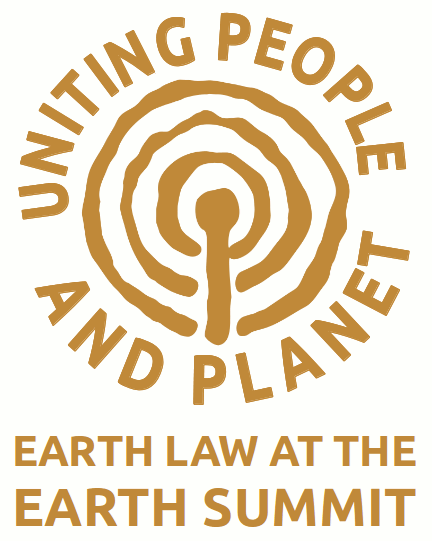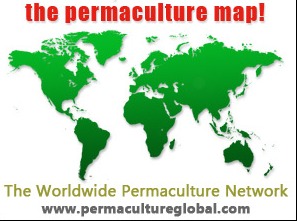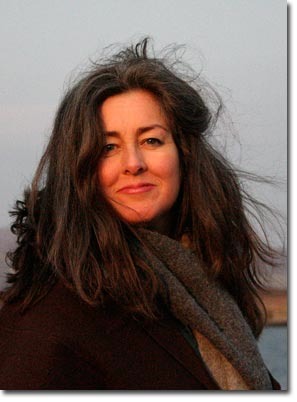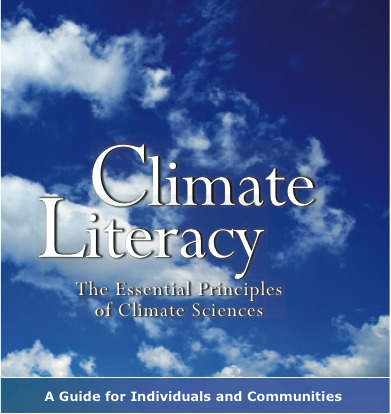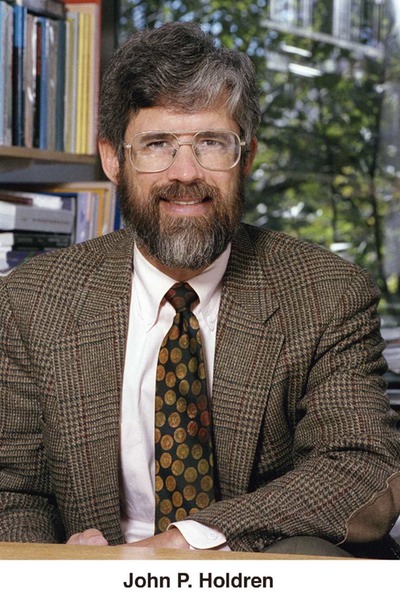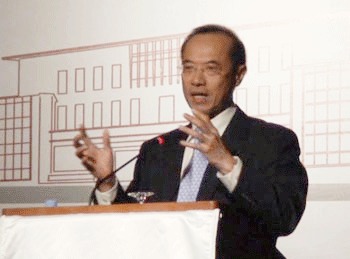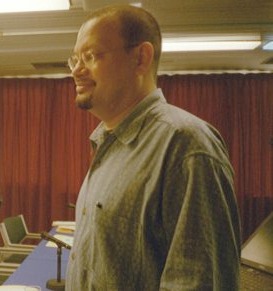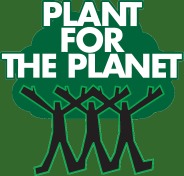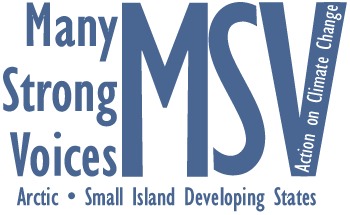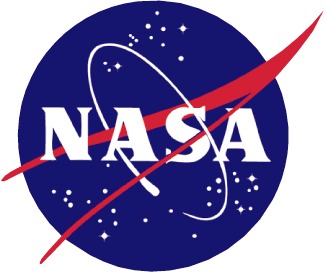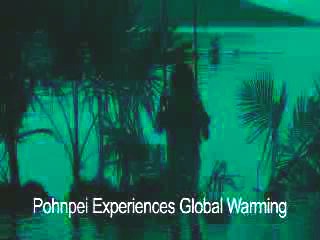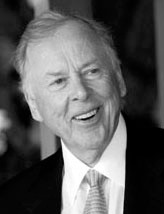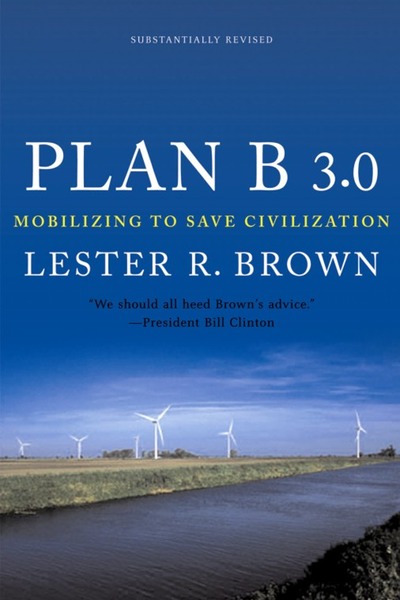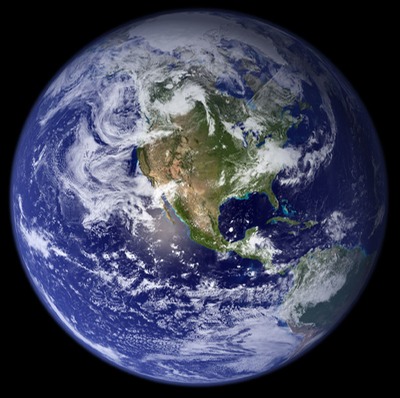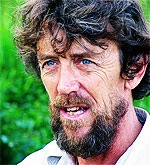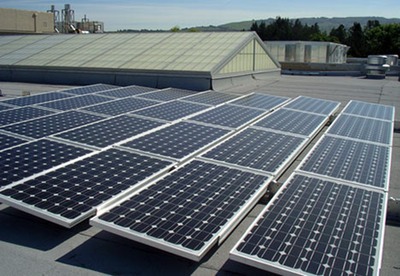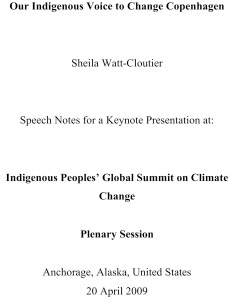
Good morning. It is wonderful to be able to address you all in Anchorage from my backyard in Iqaluit, Nunavut, Canada – I am so pleased you have all been able to journey to Alaska for this extraordinary meeting of our many peoples on climate change, and am sorry some health challenges have prevented me from joining you all this week. I want to begin by congratulating Patricia Cochran, the Chair of ICC, for her leadership and her vision for making this important Summit happen. Through her focus and commitment the Summit has become an important reality and I want to help signal this accomplishment by welcoming you all this morning.
This meeting is particularly vital in these months leading up to the U.N. Climate Change Conference in Copenhagen this December, and I am honoured to speak amongst so many leaders from indigenous communities around our planet united in the common purpose of sharing our strong voices with the world. I will share my thoughts with you this morning on how we can seize the opportunities now before us including the global financial crisis, the commonalities of our experience, and the hunger across our world for a paradigm shift in our thinking about our atmosphere and environment to reframe climate change as a human rights issue, convincing those in power that there can be no more delay in saving our climate.
For decades in the Arctic, and for centuries among many of your peoples, indigenous peoples have been subjected to the most dramatic environmental effects of globalization. The effects connect us all, whether those have been the persistent organic pollutants accumulating in our bodies and the nursing milk of our mothers, the CFCs that have weakened the protective o-zone around the world, the extractive industries exiling us from our lands and leaving environmental tragedy in their wake, or most recently the melting ice or sinking shores as a result of climate change.
Moreover, we are connected by our common experiences in struggling to adapt to this new world. In the North, the enormous changes to our communities were often accompanied by a loss of control over our lives from multiple historical traumas including forced relocations, children uprooted from their families and culture to be de- and re-programmed, children and family members sent away for medical reasons never to be heard from or seen again, the slaughter of our dogs, sexual abuse from those in authority positions, and the collapse of our seal skin market. Together these traumatic events have deeply wounded and dispirited many, translating into a ‘collective pain” of families, communities and nations. Substance abuse, health problems, and, most distressing, the loss of so many of our people to suicide have been amongst the saddest results. While the particular elements of our story in the Arctic may be unique, all of our peoples share these histories and their impacts. Throughout this shared trauma, though, we have all had our land, our predictable environment and climate and the wisdom our Elders have gained from it over millennia, to help us adapt to a new and changing world. However things are no longer so predictable and stable.
Our culture is not only used for survival on the land - these crucial life skills learned from the wisdom of the land are very transferable to the modern world. Many who have acquired these traditional skills and continue to practice them are the members of our community that are also “making it” in the modern world. One way of life is not at a cost to the other. In fact one who has and carries the values, principles, traditions, and the wisdom of our culture are able to balance more effectively the two worlds.
This is why, for us, climate change is an issue of our right and ability to exist as Indigenous peoples. But precisely that right is now being challenged and minimized by the unpredictability of our climate. As our environment becomes less predictable and more dangerous, fewer continue to lead traditional, subsistence ways of life. This means less of our culture is passed down to our young people.
The decline in our traditional way of life only increases our reliance on the goods, foods and practices from our globalizing world. I fear that leaving behind our traditional way of life is just the first step toward the loss of our language, our arts, our culture, and our very existence as indigenous peoples. If we protect our shared environment and climate, keep our cultures alive, and stay connected to the rhythms of nature, we will, as peoples, prevail and thrive.
These last decades, however, have also witnessed a remarkable awakening of a global environmental consciousness, a realization that we are all connected by our common atmosphere and oceans. The world has finally begun to see that the Inuit hunter falling through the melting ice and the small islander protecting his home from the rising tide are both connected to the cars it drives, the policies it creates, and the disposable world it has become.
As well, thanks to the long and courageous struggle of many of you gathered here today, the world has begun to recognize our long-neglected rights as indigenous peoples. The Human Rights Council has finally passed the Declaration on the Rights of Indigenous Peoples. I want to personally thank Victoria Tauli-Corpuz for her tireless work over the many years on these issues, along with ICC Greenland and Dalee Sambo of Alaska. While much remains to be done, and many of the most powerful countries have yet to sign on, we have all seen the power of the human rights approach. Six years ago in the Arctic, faced with the reports rolling in from our communities across the Arctic, and the projections that things would become much worse, we decided to take bold action to inform the world of our situation, and reframe the global discourse on climate change. We engaged a team that spanned across North America, with our own counsel and advisors in the North and legal scholars and environmental lawyers from the U.S.
After months of drafting and collecting testimony from our communities, in December 2005, we submitted a climate change-related petition to the Inter-American Commission on Human Rights. We sought a declaration that the destruction of the Arctic environment and the culture and economy of Inuit as a result of unrestricted emissions of greenhouse gases by the United States, was violating our human rights as guaranteed by the 1948 American Declaration on the Rights and Duties of Man.
The petition helped influence what had already started in the US: a real shift in the public debate on climate change. Now that change has finally come to America, I expect an enormous change both at home and abroad and as they retake leadership on the world stage. This message has inspired change with the rest of the World as well; the U.N. Human Rights Council has recognized climate change as a human rights issue for all indigenous peoples, and, sitting over the last month in Geneva, has received a report from the Office of the High Commissioner for Human Rights carefully detailing the multitude of ways that climate change is already interfering with the realization of “rights to life, food, water, health, housing, and self-determination.” Most importantly, the Office of the High Commissioner for Human Rights points to the future, and argues that, as we address climate change over the coming decades, we must use a human rights approach to empower individuals and communities, and give all those effected active participation in the decision-making that affects their lives.
Just last week at the UNFCCC climate negotiations in Bonn, Bangladesh, a nation whose people, like all of us, reside on the front line of climate change, called for global recognition of their “right to survival” as a people. This intention to reframe the debate has had a power of its own that has gone far beyond our efforts almost four years ago now.
And yet, despite all of these developments, it has now been 17 years since the UNFCCC was signed, and we still have no comprehensive global climate treaty that truly addresses this problem. We must now act boldly to reframe this debate and demand that our decision-makers act, and act quickly, before this last, fragile window passes by and our final chance to retake control of our climate melts away.
In this effort, we must ensure that our cultures are more than simply window dressing for the interests that too often control our development decisions. Rather, informing these decisions with the wisdom of our cultures must be part of a broad-based, principled re-thinking of our national approaches. As well, as I stand freely today no longer bound with a political office, I must urge you all to refuse the dangerous compromises between our principles and our development that diminish our moral high ground. As we call the world to change its ecologically degrading practices, we must not accept those practices at home no matter how desperate our need for short term development.
I am not saying, however, that we ought to halt all economic development – rather, we must assume real control over that development by insisting that every opportunity and program be systematically analyzed against its impact on our world. Just as President Obama is doing in the U.S., requiring that the economic recovery be built on “green collar jobs,” clean technology and electric cars, we must seize the opportunity of this global economic crisis to reshape our industries and economies. As indigenous peoples who have sustained ourselves on our lands for thousands of years, we have much to share with the world in terms of mainstreaming sustainable practices. What the Southern (or to some of you Northern or Western or Developed) world has suddenly discovered as clean or green technology are really ways of living that we developed and practiced for eons.
The Arctic can serve an example of such balanced development. While climate change has opened a rush to claim and develop the vast resources locked beneath our frozen soil and seas, real sustainable development in the Arctic must be centered on our people, and must be conducted with an eye not only towards meeting our short term needs but towards preserving our land for the future generations who will remain on our ice a thousand years from now.
We move now into the months before COP 15 in Copenhagen, and all of us will be meeting with our national delegations and lobbying states for bold, courageous, unified action. To support that effort, I hope we can come together this week to craft the strongest possible statement from our many peoples, recognizing our common histories including common traumas; acknowledging the interconnected impacts of climate change that now threaten our lands, our cultures, and our legacy; and calling on the world to walk the highest possible road to preserve our human rights.
I urge all of you here to take courageous, principled leadership to move your nation, and our world, forward as a shared humanity. It is through our indigenous spirit that we can guide the world back onto a sustainable path….It is through our indigenous path that we can come to show the world that we are all on this human journey together….Nakuqmiik and blessings to all.
